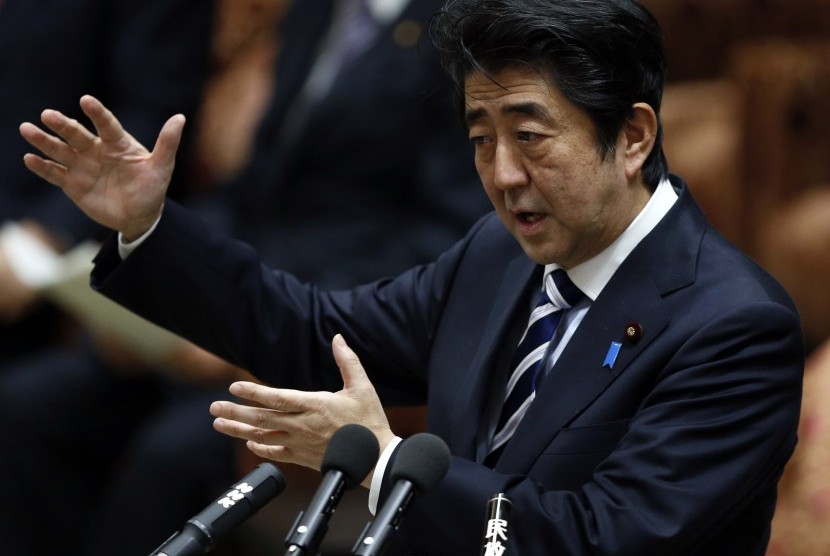REPUBLIKA.CO.ID, TOKYO -- Japanese Prime Minister Shinzo Abe and business leaders will return Wednesday evening from a week-long tour of Central Asia after striking business deals worth more than $26 billion.
The conservative leader, who has been striving to kick-start the world's number three economy, visited five countries with representatives of about 50 Japanese firms to strengthen business ties in the region where arch-rival China is investing heavily.
"I'm the first Japanese prime minister to visit five Central Asian countries at one time," Abe said in a speech in Kazakhstan, his last stop.
He also traveled to Uzbekistan, and made the first-ever official visit by a Japanese premier to Turkmenistan, Tajikistan and Kyrgyzstan.
"I believe there is a huge potential in the future" of Japan and Central Asia, he said.
During his stay in major gas exporter Turkmenistan, the premier signed deals worth 2.2 trillion yen ($18 billion) for the construction of a plant linked to natural gasfields and for other businesses.
In neighbouring Uzbekistan on Sunday, Abe signed agreements worth $8.5 billion in the energy, transport and communications sectors.
The Japanese leader also promised more than $100 million in aid to Kyrgyzstan and a smaller sum to Tajikistan, Central Asia's two poorest countries.
As rival China seeks to tap the region through its new Asian Infrastructure Investment Bank (AIIB), Abe has pledged to triple the value of infrastructure orders for Japanese firms globally, including in Central Asia, to 30 trillion yen by 2020.
The AIIB is seen as a rival to the Washington-based World Bank and the Manila-based Asian Development Bank, which has been headed by biggest donor Japan since it was founded in 1966.
The US and Japan have notably declined to join the China-led AIIB.
Observers say China's influence in Central Asia has been growing as Russia's has declined, with Beijing becoming the region's leading trading partner.
Chinese President Xi Jinping unveiled the Silk Road Economic Belt -- a vision of massive investments in infrastructure to power overland trade and economic integration across Eurasia -- during a speech in energy-rich Kazakhstan in 2013.


